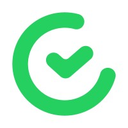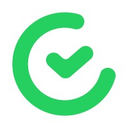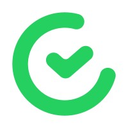TimeCamp vs Podio (2025 Comparison)

TimeCamp offers seamless time tracking and insightful reporting tools, making it ideal for freelancers and teams aiming to boost productivity. Its user-friendly interface ensures a smooth experience for all users.
- Automatic time tracking feature
- Comprehensive reporting tools
- User-friendly interface
- Limited project management features
- Basic communication tools
Free plan?
YesStarting price
$2.99 per month per user
Podio provides customizable workspaces and advanced task management, perfect for teams needing tailored solutions. Its robust communication tools enhance collaboration, making it a versatile choice for businesses.
- Highly customizable workspaces
- Advanced task management
- Robust communication tools
- Steeper learning curve
- Manual time tracking
Free plan?
YesStarting price
$11.20 per monthWhat is TimeCamp?
TimeCamp is a comprehensive time tracking software that helps businesses and freelancers manage their time efficiently. It offers features like automatic time tracking, project management, and detailed reporting, making it easier to monitor productivity and allocate resources effectively. With its user-friendly interface, TimeCamp integrates seamlessly with popular tools, ensuring a smooth workflow. Whether you're a freelancer looking to track billable hours or a team leader aiming to boost productivity, TimeCamp provides the insights you need to make informed decisions.
What is Podio?
Podio is a versatile project management and collaboration tool that empowers teams to work smarter. It offers customizable workspaces, task management, and communication features, allowing teams to tailor the platform to their specific needs. Podio's flexibility makes it ideal for businesses of all sizes, enabling seamless collaboration and efficient project execution. Whether you're managing a small team or a large organization, Podio helps streamline workflows and improve productivity by centralizing all your work in one place.
Pros and Cons of TimeCamp vs Podio

Pros & Cons of TimeCamp
- TimeCamp's automatic time tracking feature is a game-changer for users who want to monitor their work hours effortlessly. It eliminates the need for manual input, ensuring accurate time logs and boosting productivity.
- TimeCamp offers comprehensive reporting tools that provide valuable insights into productivity and time allocation. These reports help businesses make informed decisions and optimize their operations effectively.
- TimeCamp's user-friendly interface makes it easy for users to navigate and utilize its features. This simplicity is particularly beneficial for new users who want to get started quickly without a steep learning curve.
- TimeCamp's project management features are limited compared to other tools. While it excels in time tracking, users looking for comprehensive project management capabilities may find it lacking.
- TimeCamp offers basic communication tools, which may not be sufficient for teams that require robust collaboration features. Users seeking advanced communication options might need to integrate with other tools.

Pros & Cons of Podio
- Podio's highly customizable workspaces allow teams to tailor their environments to fit specific project needs. This flexibility is ideal for businesses with unique workflows and complex project requirements.
- Podio offers advanced task management features that enable teams to organize and prioritize their work effectively. This capability is crucial for teams handling multiple projects simultaneously.
- Podio includes robust communication tools that facilitate seamless collaboration among team members. This feature is essential for remote teams and businesses with distributed workforces.
- Podio has a steeper learning curve due to its extensive customization capabilities. New users may require additional time and resources to fully understand and utilize its features.
- Podio's time tracking feature requires more manual input compared to other tools. Users who prefer automation may find this aspect less convenient and time-consuming.
TimeCamp vs Podio: At A Glance
Value to Price
Value to Price is a critical dimension that evaluates the cost-effectiveness of a tool relative to its features and benefits. For TimeCamp, the pricing is competitive, offering robust time tracking features that justify its cost. Podio, while slightly more expensive, provides extensive customization options that can be invaluable for larger teams. If you're looking for a budget-friendly option with essential features, TimeCamp might be the better choice.
Ease of Use
Ease of Use assesses how user-friendly a tool is, which is crucial for adoption and efficiency. TimeCamp offers a straightforward interface that is easy to navigate, making it ideal for users who prefer simplicity. Podio, on the other hand, has a steeper learning curve due to its extensive customization capabilities. If you prioritize a tool that's easy to get started with, TimeCamp is likely the better option.
Functionality
Functionality measures the range and depth of features a tool offers. TimeCamp excels in time tracking and reporting, providing detailed insights into productivity. Podio offers a broader range of project management features, including task management and communication tools. If your primary need is comprehensive project management, Podio might be the better fit.
Scalability
Scalability evaluates how well a tool can grow with your business. TimeCamp is suitable for small to medium-sized teams, offering features that support growth. Podio, with its customizable workspaces, is better suited for larger organizations that require tailored solutions. If you're planning for significant growth, Podio may be the more scalable option.
Integrations
Integrations assess how well a tool connects with other software, enhancing its functionality. TimeCamp integrates seamlessly with popular tools like Trello and Asana, making it versatile for various workflows. Podio offers a wide range of integrations, including custom API options, providing flexibility for complex setups. If you need extensive integration capabilities, Podio is the superior choice.
Customer Support
Customer Support evaluates the quality and availability of assistance provided by the tool's support team. TimeCamp offers reliable support with a comprehensive knowledge base and responsive customer service. Podio's support is slightly less accessible, with limited options for direct assistance. If having robust customer support is crucial, TimeCamp is the better option.
Security
Security measures the tool's ability to protect user data and ensure privacy. TimeCamp implements strong security protocols, including data encryption and regular backups. Podio also offers robust security features, with additional options for enterprise-level security. If security is a top priority, both tools offer reliable protection, but TimeCamp provides a slightly more straightforward approach.
TimeCamp vs Podio: A Detailed Breakdown of Key Features
Automatic Time Tracking
TimeCamp excels in automatic time tracking, providing users with a seamless way to monitor their work hours without manual input. This feature is particularly beneficial for freelancers and remote teams who need accurate time logs. Podio, while offering time tracking, requires more manual input, which can be cumbersome for users who prefer automation. If you value a hands-off approach to time tracking, TimeCamp is the superior choice.
Project Management
Podio shines in project management with its customizable workspaces and task management features. It allows teams to tailor their workflows to fit specific project needs, making it ideal for complex projects. TimeCamp offers basic project management features, focusing more on time tracking and reporting. If your primary need is robust project management capabilities, Podio is the better option.
Reporting and Analytics
TimeCamp provides detailed reporting and analytics, offering insights into productivity and time allocation. This feature is invaluable for businesses looking to optimize their operations. Podio also offers reporting tools, but they are less comprehensive compared to TimeCamp. If you need in-depth analytics to drive decision-making, TimeCamp is the preferred choice.
Customizable Workspaces
Podio's customizable workspaces are a standout feature, allowing teams to create tailored environments for their projects. This flexibility is ideal for businesses with unique workflows. TimeCamp, while offering some customization, focuses more on time tracking and reporting. If you require highly customizable workspaces, Podio is the better fit.
Task Management
Podio offers advanced task management features, enabling teams to organize and prioritize their work effectively. This feature is crucial for teams handling multiple projects simultaneously. TimeCamp provides basic task management, with a stronger emphasis on time tracking. If task management is a priority, Podio is the superior choice.
Communication Tools
Podio includes robust communication tools, facilitating seamless collaboration among team members. This feature is essential for remote teams and businesses with distributed workforces. TimeCamp offers basic communication features, focusing more on time tracking and reporting. If communication is a key requirement, Podio is the better option.
Pricing Comparison of TimeCamp and Podio
To assist you in making an informed choice, we’ve outlined the pricing plans and essential features of TimeCamp and Podio. This comparison will highlight the best option for managing your projects and time efficiently.

TimeCamp Pricing Plans
- Unlimited users for collaborative work.
- Unlimited projects to manage multiple tasks.
- Web, desktop, and mobile apps for accessibility.
- Time Clock Kiosk for easy attendance tracking.
- Excel reports export for data analysis.
- Attendance tracking for workforce management.
- Time-off management for employee leave.
- Unlimited tasks for comprehensive project management.
- Budget and estimates for financial planning.
- Apps and websites tracking for productivity insights.
- Management roles for team leadership.
- Projects archiving for organized data storage.
- Billing rates for customized client charges.
- Expenses tracking for financial management.
- Pivot table for advanced data analysis.
- Screenshots for activity verification.
- Self-hosted instance for data control.
- Private cloud instance for secure storage.
- Custom integrations for tailored solutions.
- Training and assistance for user onboarding.

Podio Pricing Plans
- Unlimited apps to customize your workflow.
- Granular app permissions for enhanced security.
- Automated workflows to streamline tasks.
- Read-only access for controlled information sharing.
- User management for efficient team collaboration.
- Unlimited client users for external collaboration.
- Light user role for flexible access control.
- Automated workflows for time-saving task automation.
- Interactive sales dashboards for sales tracking.
- Cloud phone system and power dialer for communication.
- Advanced workflow automation for complex processes.
- Email integrations for seamless communication.
Our Rating Methodology
We thoroughly evaluate each project management tool, focusing on key aspects like functionality, scalability, and ease of use. By analyzing user feedback and conducting hands-on testing, we ensure our recommendations align with your needs. Each factor is weighted by importance to deliver a reliable final rating, helping you make informed decisions.
TimeCamp or Podio: Which One Matches Your Business Needs?
Choose TimeCamp If You Need ...
- Ideal for time tracking
If you need a tool that excels in time tracking and provides detailed reporting, TimeCamp is the ideal choice. Its automatic time tracking feature ensures accurate logs, making it perfect for freelancers and remote teams.
- User-friendly interface
If you prefer a tool with a user-friendly interface that is easy to navigate, TimeCamp is the better option. Its simplicity allows users to get started quickly without a steep learning curve.
Choose Podio If You Need ...
- Customizable workspaces
If you require highly customizable workspaces to tailor your project environments, Podio is the superior choice. Its flexibility is ideal for businesses with unique workflows and complex project requirements.
- Advanced task management
If task management is a priority for your team, Podio offers advanced features that enable effective organization and prioritization. This capability is crucial for teams handling multiple projects simultaneously.
Frequently Asked Questions
 Which tool is better for time tracking?
Which tool is better for time tracking?
 Which tool offers more customization options?
Which tool offers more customization options?
 Which tool is easier to use?
Which tool is easier to use?
 Which tool is better for project management?
Which tool is better for project management?
 Which tool offers better reporting and analytics?
Which tool offers better reporting and analytics?
 Which tool has better customer support?
Which tool has better customer support?

Anastasia Belyh
Anastasia Belyh is a senior tech writer with over 15 years of experience in marketing, sales, and business software. Having worked in investment banking, management consulting, and founded multiple companies, her in-depth knowledge and hands-on expertise make her software reviews authoritative, trustworthy, and highly practical for business decision-makers.



